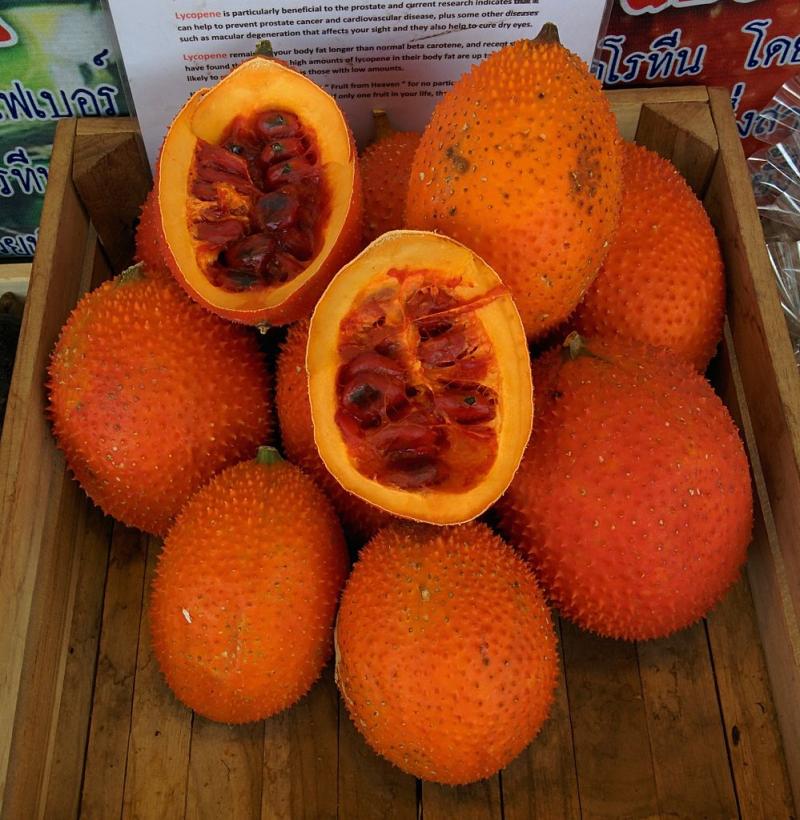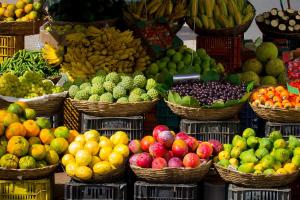
Because it has a relatively short harvest season (which peaks in December and January), making it less abundant than other foods, gac is typically served at ceremonial or festive occasions in Vietnam, such as Tết (the Vietnamese new year) and weddings. It is most commonly prepared as a dish called xôi gấc, in which the aril and seeds of the fruit are cooked in glutinous rice, imparting both their color and flavor. More recently, the fruit has begun to be marketed outside of Asia in the form of juice dietary supplements because of its high phytonutrient content. Traditionally, gac has been used as both food and medicine in the regions in which it grows. Other than the use of its fruit and leaves for special Vietnamese culinary dishes, gac is also used for its medicinal and nutritional properties. In Vietnam, the seed membranes are said to aid in the relief of dry eyes, as well as to promote healthy vision. Similarly, in traditional Chinese medicine the seeds of gac, known in Mandarin Chinese as mù biē zǐ (Chinese: 木 鳖 子 meaning 'wooden turtle seed'), are employed for a variety of internal and external purposes.
